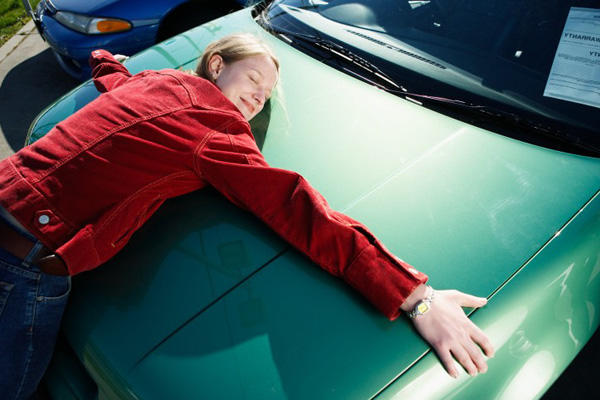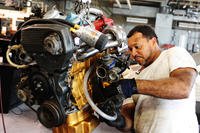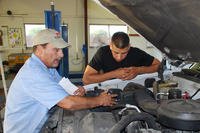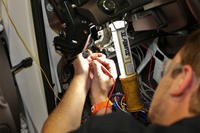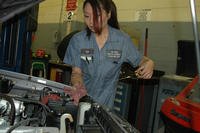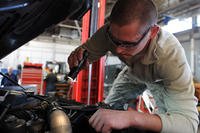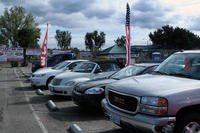Content provided courtesy of USAA.
The internet has changed the game in all forms of commerce, particularly when buying or selling a car. You don't have to deal with a dealership when shopping for a vehicle or rely on putting a "for sale" sign on your windshield when trying to sell one.
But with this convenience comes risk. After all, Internet sales usually introduce strangers — first, in cyberspace and, eventually, in person, when money, keys and cars change hands.
Follow these common-sense practices to help ward off online fraudsters, whether you're buying, selling or just looking around.
Stay Safe Online
1) Limit your audience. Craigslist and eBay popularized buying and selling goods online.
2) Verify the business. If buying or selling through a third party, use the Better Business Bureau's website to determine the legitimacy of a business.
Katherine Hutt of the BBB recalls one scam in which scammers faked a dealer's website. They used a recently closed dealership's name and address, and copied car listings from other dealers across the country, hoping that naïve buyers would send money for cars the scammers didn't own. The site's home page even faked an image of a car lot by using photos of cars parked at a shopping center.
3) Do some digging. If you find a great deal, become an online sleuth. Do a Google® image search for the featured make and model to see if the image you see appears elsewhere. If it does, the image may have been copied from another site.
Likewise, buyers should search for the phone number associated with a listing by putting it in quotation marks in the search box. "They'll find any other place online where the number has been used — perhaps even scam warnings," Hutt adds.
Beware of too-good-to-be-true claims. If an ad touts 30,000 miles on a 5-year-old car, ask the seller to take a picture of the odometer and email it to you. If they balk, you've spotted a scam.
4) Be "cyber smart." Use the same caution you'd use with any other type of online interaction. If you decide to respond to an ad, don't use your address, phone number or other personal data, unless you are sending it to a trusted source. Hutt even suggests that creating a dedicated email address for online business dealings may help keep your personal information safer.
If a potential buyer or seller sends you a link to a listing via email, beware. A wrong click can send you to a fraudulent site or install a virus on your computer. Protect yourself even further by installing up-to-date anti-virus, anti-spyware and firewall software.
Stay Safe in Person
It's likely that you'll eventually have to meet in person to make the deal. These tips can help you stay safe when meeting face-to-face:
- Meet in a very public, well-lit place.
- Always takes someone with you.
- Better safe than sorry. If you feel uncomfortable prior to meeting, call it off.
Don't Get Stuck with a Lemon — or in a Financial Pickle
1) Always take a test drive. "It's risky to buy sight-unseen," Hutt warns. "Even if it's a collector's car located in a neighboring state, it's worth the trip there to pick it up."
But use your best judgment when considering whether to go on the test drive with a stranger. Automotive expert Lauren Fix, known as The Car Coach®, recommends riding along, lest you never see the car again. However, Hutt warns against driving with someone whose driving record and habits you don't know.
2) Investigate the car. Ask for a copy of the title to the car. Make sure the car you're buying is the one being sold. "If the seller can't produce the title, walk away," Hutt cautions.
For used cars, ask the seller for a vehicle identification number and purchase a CARFAX® Vehicle History Report to see if the car has been stolen or damaged.
Fix warns that not every car makes it into the CARFAX database, so it's best to have a trusted mechanic inspect the car before you buy.
3) Verify funds. If a buyer pays by cashier's check, contact the issuing bank to make sure the check is legit. Use a phone number you find on the bank's website — in case the one printed on the check itself is a fake.
And never wire money back to buyers for overpayment before the check clears. The BBB says a common scam involves buyers who send a check for too much money and then ask the seller to wire back the overpayment. When the original check fails to clear, the seller is out the money wired — and sometimes the car.
4) Document the sale. Make sure a complete bill of sale, outlining the terms of any warranties, accompanies the purchase, Fix recommends.
